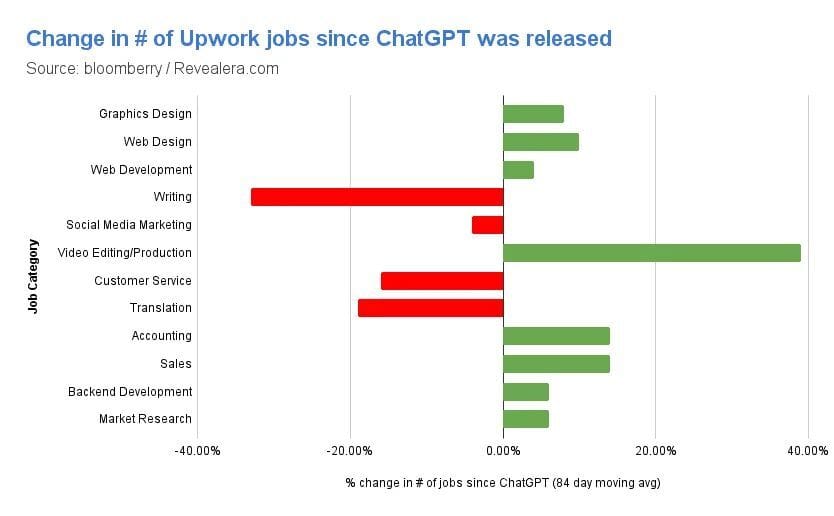
Since ChatGPT's entry into the market, certain professions such as video editing, accounting, and sales have actually experienced a SURGE in demand. The fears of mass displacement of workers may be overstated, at least for now.
New job categories.
The AI revolution will probably generate new job categories. Historical trends in disruptive technology have consistently shown job creation alongside obsolescence. Three certainties frame this discussion: AI will inevitably replace certain jobs, it will create new ones, and these changes will occur rapidly. Yet, the transition won't be immediate. Many AI technologies aren't ready to fully automate complex job roles. For instance, Amazon's decision to revert from automated grocery stores underscores that technology still struggles to outperform human capability in various scenarios.
Tech employers prioritize candidates who are proficient in AI collaboration
Most job roles today involve multifaceted workflows. For white-collar professionals, AI has proven to be a productivity booster rather than a replacement. As AI becomes a staple in the workplace, the best course of action is to understand how to synergize with AI in your field. Notably, a significant majority of tech employers now prioritize candidates who are proficient in AI collaboration over traditional skills.
The interplay between AI and employment is nuanced. Yes, AI will take over some jobs, but it will also pave the way for new roles. The question is not if, but how you will adapt to the changing tides.
What steps are you taking to integrate AI into your professional skill set?
